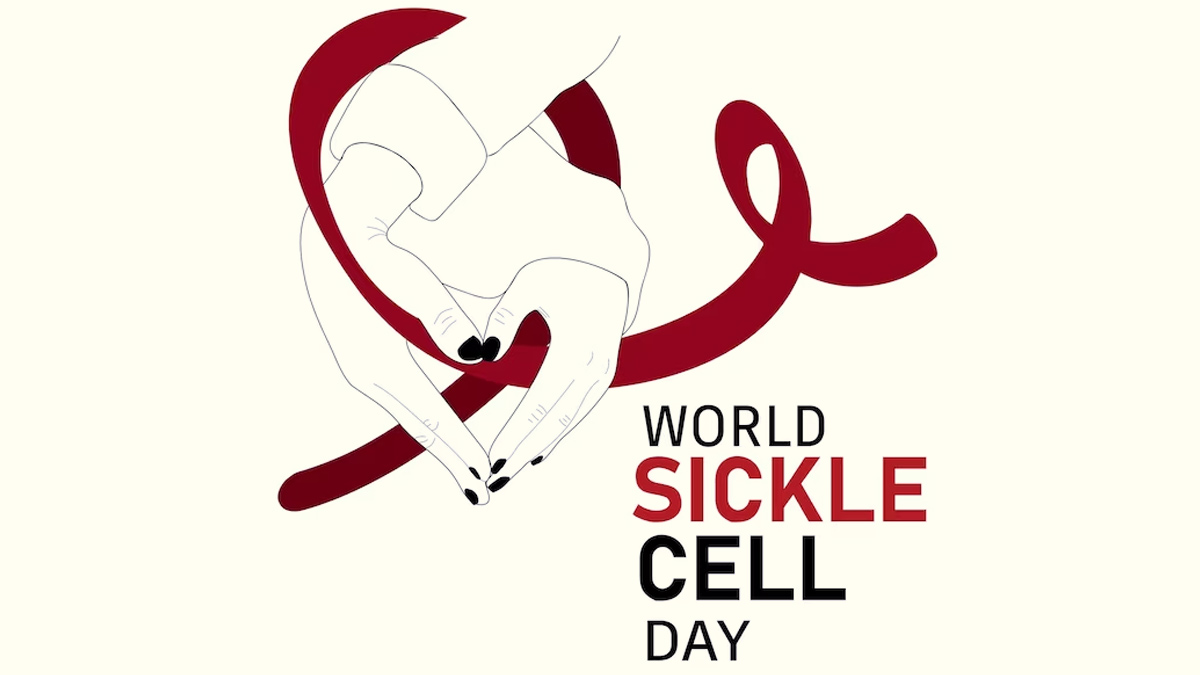
Sickle Cell Disease (SCD), a hereditary blood disorder, has long posed significant challenges to patients and healthcare providers alike. However, recent breakthroughs in early diagnosis techniques have emerged as a game-changer in the treatment of this debilitating condition. By identifying the disease at its earliest stages, medical professionals can implement targeted interventions, improve patient management, and enhance long-term outcomes.
Table of Content:-
On this World Sickle Cell Day 2023, we spoke to Dr Ganesh Jaishetwar, Consultant Haematologist, Haemato-Oncologist, and Bone Marrow Transplant Physician, Yashoda Hospitals, Hyderabad, to learn more about the role of early diagnosis in treating SCD.
What is Sickle Cell Disease?
SCD is a genetic blood disorder that affects the shape of red blood cells. People with this condition have abnormal haemoglobin, which causes their red blood cells to become crescent-shaped or sickle-shaped. These abnormal cells can get stuck in small blood vessels, leading to blockages that cause pain, organ damage, and health problems.
According to Dr Jaishetwar, "Traditionally, SCD has been diagnosed in children during their first few years of life, often after the manifestation of symptoms, such as severe pain crises, anaemia, and organ damage."

According to the World Health Organization, around 5% of the global population possesses genetic traits related to haemoglobin disorders, primarily SCD, and thalassaemia. As per the Ministry of Tribal Affairs, Government of India, SCD is prevalent among tribal communities in India, with approximately 1 in 86 births among Scheduled Tribes (STs) being affected by SCD.
Also Read: Budget 2023: Government To launch A Mission To Eliminate Sickle Cell Anaemia By 2047
Early Diagnosis Of Sickle Cell Disease
"Researchers and healthcare experts have recognised the critical importance of identifying the disease as early as possible to mitigate complications and provide more effective care," said Dr Jaishetwar.
Newborn Screening Programs
A notable advancement in early diagnosis comes in the form of newborn screening programs. "By screening infants shortly after birth, doctors can detect SCD even before the onset of symptoms. This enables prompt initiation of preventive measures, such as vaccination against infections and administration of prophylactic antibiotics, reducing the risk of life-threatening complications," said Dr Jaishetwar.
Genetic Testing
"Furthermore, advancements in genetic testing have revolutionised the field of SCD diagnosis. Through genetic analysis, scientists can identify the specific genetic mutations responsible for the condition, offering valuable insights into its severity and potential complications," added the doctor.

"Armed with this knowledge, healthcare providers can tailor treatment plans to each patient's unique needs, optimising outcomes and minimising the risk of complications," he said.
Novel Diagnostics Tools
"Another promising development is the utilisation of novel diagnostic tools, such as point-of-care testing devices," said Dr Jaishetwar. He explained that these portable devices enable quick and accurate assessment of SCD markers, allowing for rapid diagnosis in various healthcare settings. "With these tools at their disposal, healthcare professionals can swiftly identify patients with the disease, even in resource-limited settings, facilitating timely intervention, and appropriate management," he added.
Also Read: Managing Sickle Cell Disease: Here’s What You Should Know About SCD
Novel Therapeutic Approaches

"Early diagnosis also opens doors to novel therapeutic approaches, including gene editing and stem cell therapies. By identifying the disease early, patients can undergo these innovative treatments at an optimal time, potentially reversing or alleviating symptoms, and reducing the need for extensive lifelong interventions," said Dr Jaishetwar.
Empowers Patients and Families
Moreover, the impact of early diagnosis extends beyond medical intervention. "It empowers patients and families by providing them with essential knowledge about the disease, allowing for informed decision-making and proactive self-management," said the doctor. "Education and counselling programs can be initiated early, offering emotional support and practical guidance to those affected by SCD," he added.
Conclusion
While early diagnosis represents a significant milestone in SCD management, challenges remain. Widespread implementation of newborn screening programs, equitable access to diagnostic tools, and increased awareness among healthcare providers are crucial steps towards achieving optimal outcomes for all patients.
[Disclaimer: The information in this article is provided by a registered medical practitioner. However, we recommend you consult your healthcare provider for accurate diagnosis and treatment.]
Also watch this video
How we keep this article up to date:
We work with experts and keep a close eye on the latest in health and wellness. Whenever there is a new research or helpful information, we update our articles with accurate and useful advice.
Current Version
